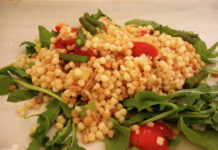The Paleo diet, short for Paleolithic diet, is a dietary approach inspired by the eating habits of our ancient ancestors who lived during the Paleolithic era, approximately 2.5 million to 10,000 years ago. The core idea behind the Paleo diet is to mimic the dietary patterns of hunter-gatherer societies, believing that this ancestral approach to nutrition is more suited to our genetic makeup and can promote better health and well-being. The diet gained popularity in the early 2000s and continues to be a subject of interest for health-conscious individuals seeking a natural and holistic approach to eating.
1. The Foundations of the Paleo Diet:
The Paleo diet is built upon the premise that human genes have scarcely evolved since the Paleolithic era, during which early humans survived by hunting wild animals, fishing, and gathering fruits, vegetables, nuts, and seeds. Advocates of the Paleo diet argue that modern agricultural practices and the advent of processed foods have introduced dietary elements that our bodies are ill-equipped to handle, leading to various health issues. By returning to the basics and consuming whole, unprocessed foods, proponents believe that the Paleo diet can optimize health and prevent chronic diseases.
2. The Foods Allowed on the Paleo Diet:
The Paleo diet primarily focuses on whole, nutrient-dense foods, while eliminating or minimizing processed and refined foods. The typical foods allowed on the Paleo diet include:
- Meat and Fish: Grass-fed or pasture-raised meats, such as beef, pork, and poultry, are staples of the Paleo diet. Fish and other seafood rich in omega-3 fatty acids are also encouraged.
- Fruits and Vegetables: A wide variety of fruits and vegetables are central to the Paleo diet, providing essential vitamins, minerals, and antioxidants.
- Nuts and Seeds: These are nutrient-dense sources of healthy fats, proteins, and various micronutrients. However, some proponents recommend consuming them in moderation due to their calorie density.
- Eggs: Free-range or organic eggs are a valuable source of protein and nutrients.
- Healthy Fats: Oils from coconuts, avocados, and olives, as well as grass-fed butter and ghee, are encouraged on the Paleo diet.
- Herbs and Spices: These are used to add flavor to dishes without the need for processed sauces or condiments.
3. Foods to Avoid on the Paleo Diet:
The Paleo diet excludes several food groups that have become staples of modern diets. Foods to avoid on the Paleo diet include:
- Grains: All grains, including wheat, rice, oats, and corn, are excluded. This means no bread, pasta, or cereals.
- Legumes: Beans, lentils, peanuts, and soy products are not part of the Paleo diet.
- Dairy Products: Milk, cheese, yogurt, and other dairy items are eliminated, as early humans did not consume dairy from domesticated animals.
- Processed and Refined Foods: Processed foods, sugary snacks, and artificial additives are not allowed, as they were absent in the diets of early humans.
- Highly Processed Fats and Oils: Vegetable oils, margarine, and other highly processed fats are restricted due to their high omega-6 fatty acid content.
4. The Potential Benefits of the Paleo Diet:
Advocates of the Paleo diet claim several potential benefits, although scientific evidence is still mixed and limited in some areas. Some potential benefits attributed to the Paleo diet include:
- Weight Loss: The emphasis on whole foods and the exclusion of processed items may naturally lead to weight loss in some individuals.
- Improved Blood Sugar Control: By avoiding refined sugars and carbohydrates, the Paleo diet may help stabilize blood sugar levels.
- Better Digestion: The focus on fruits, vegetables, and nuts can provide ample fiber, promoting healthy digestion.
- Increased Nutrient Intake: The diet encourages the consumption of nutrient-dense foods, which may lead to increased intake of essential vitamins and minerals.
- Reduced Inflammation: Some studies suggest that the Paleo diet may help reduce markers of inflammation in the body.
5. Potential Concerns and Criticisms:
While the Paleo diet has its proponents, it also faces criticism and potential concerns:
- Lack of Scientific Consensus: Some nutrition experts argue that the Paleo diet’s claims are based more on speculation than solid scientific evidence.
- Restrictive Nature: The strict elimination of entire food groups may make the diet difficult to follow, leading to potential nutrient deficiencies.
- Cost and Sustainability: The emphasis on organic, grass-fed, and pasture-raised foods can make the Paleo diet more expensive and may not be environmentally sustainable in the long term.
- Missing Evolutionary Context: Critics argue that humans have indeed evolved since the Paleolithic era, and our modern bodies may not function precisely like those of our ancient ancestors.
6. Personalization and Moderation:
As with any diet, the Paleo approach may not be suitable for everyone. Individual factors, such as metabolism, activity level, and health status, play a significant role in determining dietary needs. Some people may find success and improved health on the Paleo diet, while others may experience challenges or nutrient gaps. Personalization and moderation are key factors in adopting any diet, and seeking guidance from a qualified healthcare professional or registered dietitian can help determine if the Paleo diet aligns with individual needs and goals.
The Paleo diet offers a unique perspective on nutrition, drawing inspiration from our ancient ancestors’ dietary habits during the Paleolithic era. By focusing on whole, unprocessed foods and eliminating grains, legumes, and dairy, the diet seeks to optimize health and well-being. While the Paleo diet may offer potential benefits, it also faces criticism and potential concerns. As with any dietary approach, personalization, and moderation are essential in determining its suitability for individual needs. While the Paleo diet may not fully replicate the exact dietary habits of our ancestors, it remains a compelling option for those seeking a more natural and ancestral approach to nutrition.
























